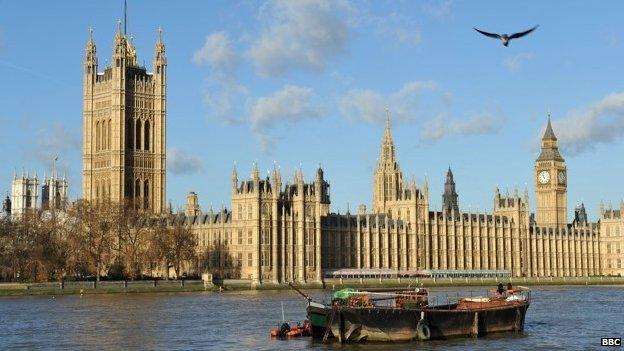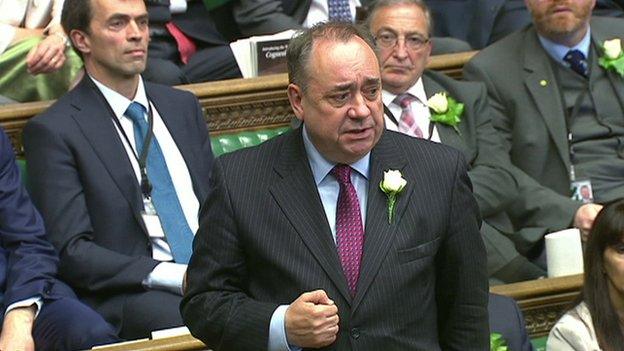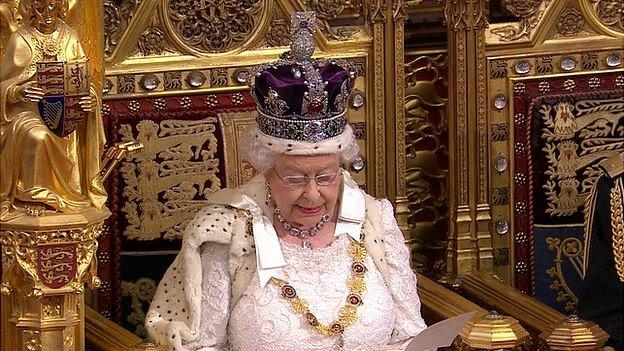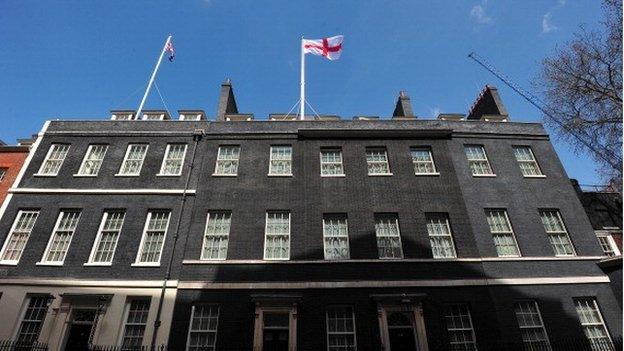Queen's Speech: 'English votes for English laws' plan
- Published

The government is proposing to change the "standing orders" by which the Commons organises its business
Plans to give MPs from English constituencies an effective veto on laws affecting only England are included in the Queen's Speech.
Downing Street said it would press ahead with plans for so-called "English votes for English laws" by changing procedures in the House of Commons.
It wants decisions on matters affecting England or England and Wales to be taken only with the consent of the majority of MPs from the two nations.
It was a Conservative election pledge.
David Cameron promised to give English MPs more say on future laws affecting only England in the wake of last year's Scottish independence referendum.
Scotland voted to remain in the UK but David Cameron and other leaders of the Westminster parties agreed to devolve substantial new powers over tax and welfare to the Scottish Parliament in the run-up to the referendum vote, in turn triggering calls for more devolution to England.
'Fairer'
Mr Cameron has ruled out creating an English Parliament, an idea supported by some Tory MPs, saying the Westminster Parliament will be "maintained as the UK and England's law-making body" and all MPs - irrespective of which constituencies they represent - will be able to "deliberate or vote together", including on all tax and spending matters.
But Downing Street is proposing to overhaul the standing orders of the House of Commons - the written rules by which it conducts its business - in order to make voting procedures "fairer".

Former SNP leader attacked the proposed changes
"We want Parliament to work in a way that ensures decisions affecting England or England and Wales can only be taken with the consent of the majority of MPs representing constituencies in England, or in England and Wales," it said.
"We will end the manifest unfairness whereby Scotland is able to decide its own laws in devolved areas, only for Scottish MPs also to be able to have the potentially decisive say on similar matters that affect only England or Wales."
The proposals were welcomed by a succession of Conservative MPs, including John Redwood, Cheryl Gillan and Jacob Rees-Mogg.
'Fundamental breach'
But the SNP has warned that any move to restrict the voting rights of MPs would create "two classes" of MP.
Urging the Commons Speaker to conduct an investigation into the wider implications of such a move, former SNP leader Alex Salmond said it would "breach the fundamental principle that all members of the House are equal".
In his first contribution since returning to the Commons as an MP, Mr Salmond said that if no action was taken, "any majority government could change standing orders to restrict the rights of any member without so much as a bye or leave".
Commons Speaker John Bercow said it was an important matter and one on which he would take advice.
Labour wants the issue to be considered as part of a wider Constitutional Convention while UKIP has called for the scrapping of the Barnett Formula, the mechanism by which spending is allocated to the nations of the UK. The government says it will keep the Formula.
- Published27 May 2015

- Published14 October 2014
